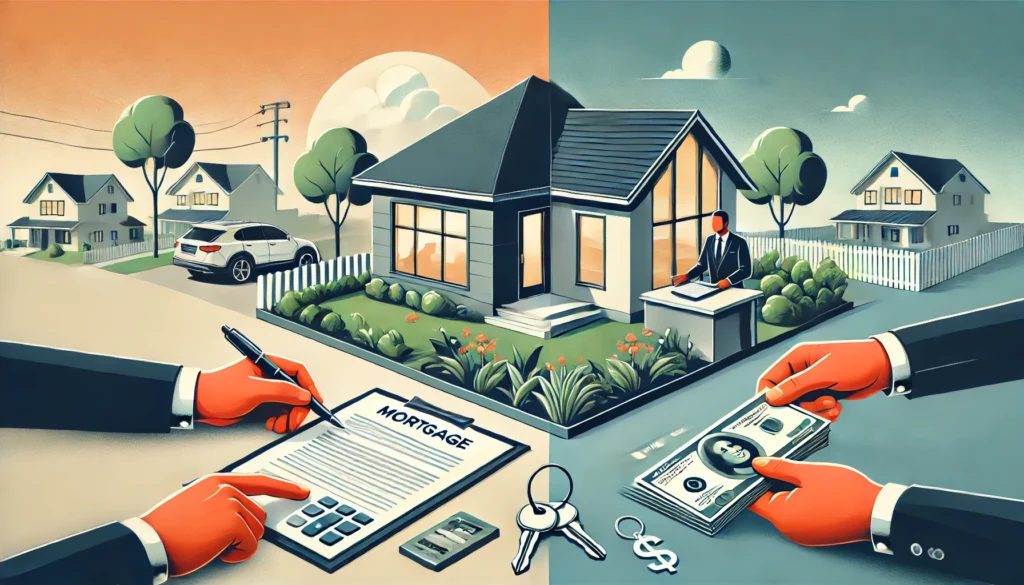Mortgage or Self-Funding? The Best Way to Finance Your Dream Home in Ghana

Embarking on the journey to homeownership in Ghana is both exciting and significant. A crucial decision in this process is choosing the right financing method. This article explores two primary avenues: mortgage financing and self-funding, detailing their features, benefits, and considerations to help you make an informed choice.
Mortgage Financing
A mortgage is a loan specifically designed for purchasing property, where the property itself serves as collateral. In Ghana, several financial institutions offer mortgage products tailored to various needs.
Key Features:
-
Loan-to-Value Ratio (LTV): Banks typically finance up to 80-90% of the property’s value, requiring you to make a down payment of 10-20%.
-
Repayment Terms: Mortgage terms can extend up to 20 years, allowing for manageable monthly payments.
-
Interest Rates: Rates vary based on the lender and loan specifics. For instance, Republic Bank offers rates of 11.5% per annum for USD loans and 21% per annum for Ghana Cedi loans.
Eligibility Criteria:
-
Income Stability: Proof of a steady income is essential to demonstrate repayment capability.
-
Employment Status: Permanent employment with a reputable organization is often required.
-
Credit History: A good credit record enhances your chances of approval.
Advantages:
-
Immediate Ownership: Acquire your home without waiting to amass the full purchase amount.
-
Financial Flexibility: Preserve savings for other investments or emergencies.
Considerations:
-
Long-Term Commitment: Mortgages require consistent repayments over many years.
-
Total Cost: Interest payments increase the overall cost of the property.
Self-Funding
Self-funding involves purchasing property outright using personal savings or investments, avoiding external borrowing.
Key Features:
-
Payment Plans: Some developers offer structured payment schedules. For example, Appolonia City provides plans over 6, 12, or 18 months with specific installment percentages.
-
Cost Savings: By avoiding loan interest and fees, the total expenditure on the property can be reduced.
Advantages:
-
Debt-Free Ownership: Own your home without the obligation of monthly repayments.
-
Negotiation Leverage: Full payment may provide an advantage in price negotiations.
Considerations:
-
Capital Requirement: Requires substantial upfront funds, which may not be feasible for everyone.
-
Liquidity Impact: Allocating a large sum to property can limit cash available for other opportunities or emergencies.
Making the Right Choice
Deciding between mortgage financing and self-funding depends on personal circumstances, financial health, and long-term goals.
Consider the following:
-
Financial Assessment: Evaluate your income, savings, and investment portfolio. If you have sufficient funds without compromising financial security, self-funding could be advantageous.
-
Risk Tolerance: Mortgages introduce long-term financial commitments. Assess your comfort with potential economic fluctuations affecting repayment ability.
-
Market Conditions: Analyze current real estate trends and interest rates. Favorable conditions might make mortgages more appealing.
-
Future Plans: Consider your career trajectory, family plans, and potential need for financial flexibility.
Conclusion
Both mortgage financing and self-funding offer viable paths to homeownership in Ghana. Mortgages provide immediate access to property with manageable payments, while self-funding offers debt-free ownership and potential cost savings. Carefully assess your financial situation, consult with financial advisors, and choose the option that aligns best with your goals and circumstances.